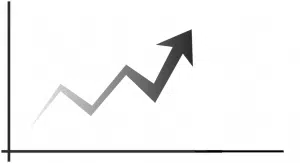What Is A Forex Broker?
By TOI Staff
November 11, 2022
Update on : December 8, 2022

When you’re ready to start trading forex, the first thing you’ll need to do is find a forex broker. But what exactly is a forex broker? In short, a forex broker is an intermediary that provides traders with access to the foreign exchange market. By connecting traders with banks and other financial institutions, forex brokers help them to buy and sell currencies. Forex brokers are also responsible for providing their clients with trading platforms and software programs enabling traders to place orders and track their positions. Some brokers also offer additional services such as education and market research. For example, if someone wants to trade U.S. dollars for euros, the broker will help them to find someone willing to trade euros for U.S. dollars. In addition to facilitating currency trades, Forex brokers provide other services, such as market analysis and advice on trading strategies. Some Forex brokers also offer the ability to trade other financial instruments, such as stocks, options, and cryptocurrency. As a result, Forex brokers play an important role in global financial markets.
How to choose a forex broker
With so many forex brokers, choosing one that’s right for you can be difficult. Here are a few things to consider:
Security and regulation
When entrusting your hard-earned money to someone, you should first ensure that they are regulated and licensed by a reputable body such as the Financial Conduct Authority (FCA) in the U.K., or the National Futures Association (NFA) in the U.S. This will guarantee that your broker is held to strict standards and that your money is safe.
Customer service and education
A good forex broker will offer excellent customer service and be available 24/7. They should also offer educational resources such as webinars, books, and articles to help you learn about trading currencies. These resources will help you become a better trader and give you an edge over the competition.
Compare spreads and fees
Another important thing to consider is how much the broker charges in terms of spreads and fees. Spreads are the difference between the bid and ask prices of a currency pair, and fees are typically charged as a commission on each trade. Some brokers charge higher spreads and fees than others, so it’s important to compare your options before deciding. You can find this information on the broker’s website or by speaking with a representative.
Consider the platform
When you’re trading forex, you’ll be doing so through a platform provided by the broker. It’s important to ensure that the platform is user-friendly and offers all of the features and tools you need to succeed. Most brokers offer demo accounts that allow you to test their platform before committing to an account with them. This is an excellent way to get a feel for the platform and decide whether or not it’s right for you.
Benefits of using a broker for trading forex
Having a foreign exchange broker on your side can greatly assist your trading success. Here’s why:
Leverage

Gambar oleh OpenClipart-Vectors dari Pixabay
When you trade forex, you’re effectively borrowing money to trade. This is called leverage, and it’s a great way to increase your potential profits. A good forex broker will offer you a leverage of up to 1:200, which means that for every $1 you have in your account, you can trade up to $200 worth of currency.
Risk management
Another benefit of using a forex broker is that they can help you manage your risk when trading forex. They do this in many ways, including offering features such as stop-loss orders and limit orders, enabling you to exit a trade automatically whenever you feel like it. Good risk management is essential for any trader, and a good broker will help you do that.
Expert analysis
A third benefit of using a forex broker is that they often have access to expert market analysis that they can pass on to their clients. This analysis can be extremely helpful in making informed trading decisions – after all, the more information you have about the market, the better you’ll be at making money from it!
Most brokers will offer their clients some form of market analysis – daily or weekly reports, live expert webinars, or even one-to-one consultations with an analyst. This is all valuable information that can help improve your trading results.
Customer service
Another benefit of using a forex broker is that they usually offer around-the-clock customer service. This is important because the foreign exchange market never sleeps. So if something happens in the market outside of normal trading hours, you’ll want to be able to get in touch with your broker right away to take advantage of it – or exit a losing position before things get too out of hand!
















